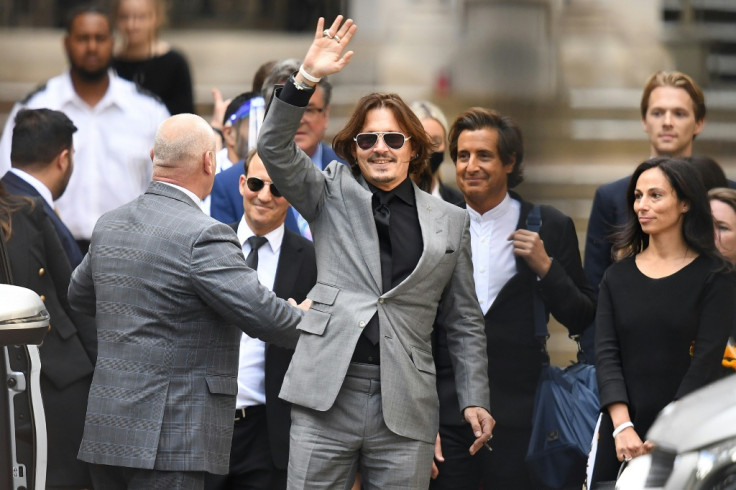Johnny Depp says he's victim of 'cancel culture' amid controversial appearance at Spanish film festival
Depp said this "instant rush to judgment based on essentially what amounts to polluted air" caused his legal defeat.
Johnny Depp has dubbed himself a victim of "cancel culture," as he believes that public opinion highly influenced his defeat in the libel case against a newspaper over an article that portrayed him as a "wife-beater."
The actor had filed the case on the grounds that the unproven allegations in The Sun article made him lose his prized role of Captain Jack Sparrow in the "Pirates of the Caribbean" series and caused major damage to his career. He went on to be dropped from the "Fantastic Beasts" franchise after he was defeated in the case in November last year.
Depp continues to struggle with a lack of new roles, while fighting a legal battle in a separate defamation case he has filed against his ex-wife over a Washington Post essay that she wrote about domestic violence. He spoke about his legal defeat and cancel culture's impact on it as he took the stage at the San Sebastian International Film Festival on Wednesday to accept the prestigious Spanish festival's highest honour- Donostia Award, reports Deadline.
Answering questions from reporters hours before attending the gala being held in Donostia-San Sebastián, Basque Country, the 58-year-old said, "It's a very complex situation, this cancel culture, or this instant rush to judgement based on essentially what amounts to polluted air. It's got so far out of hand that I can assure you, no-one is safe. Not one of you, so long as someone is willing to say one thing."
Without mentioning his ex-wife or the legal cases, he said, "It takes one sentence, then there's no more ground, the carpet has been pulled." A judge had ruled last year that the allegations made against him in The Sun article were "substantially correct," while the Court of Appeal refused him permission to appeal against the ruling in March this year saying his attempt to overturn the decision had "no real prospect of success."
The "Edward Scissorhands" star added, "It's not just me that it's happened to. It's happened to a lot of people: women, men, children have suffered from various types of unpleasantries that sadly at a certain point they begin to think it's normal, that it's them. It's not."
Meanwhile, his attendance at the event continued to face opposition from female filmmakers and other groups, who criticised the organisers' decision to distinguish Depp with the festival's top award. They said that the move has tarnished the event's image and delivered the wrong message to victims of gender violence.
Spain's Association of Female Filmmakers and Audiovisual Media, which has close links to the festival, also argued that awards should not be granted based only on professional or artistic achievements. The association, known as CIMA, wrote in a Twitter thread, "What is the message that remains when men denounced for sexist violence are applauded, photographed on red carpets, surrounded by unconditional fans?"
Depp himself admitted that he was worried his presence at the festival "would offend people" which he "didn't want." "I haven't done anything, I just make movies," he said, while praising the festival's director Jose Luis Rebordinos and the mayor of San Sebastian for their "undying support" and for "not buying what has been, for far too long, some notion of me that doesn't exist".

© Copyright IBTimes 2025. All rights reserved.





















